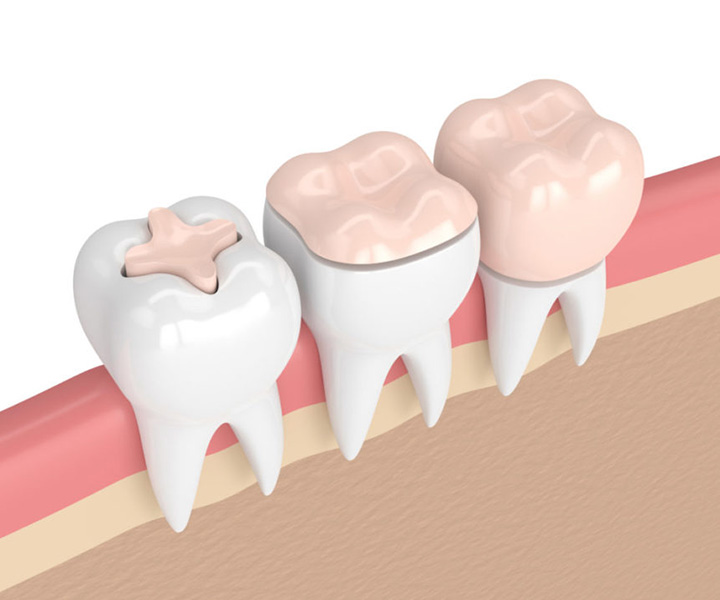St. Lawrence Dentistry is pleased to offer the latest advances in minimally invasive dentistry.
Biomimetic Dentistry is the attempt of dentistry to mimic the biological and elastic properties of a natural tooth.
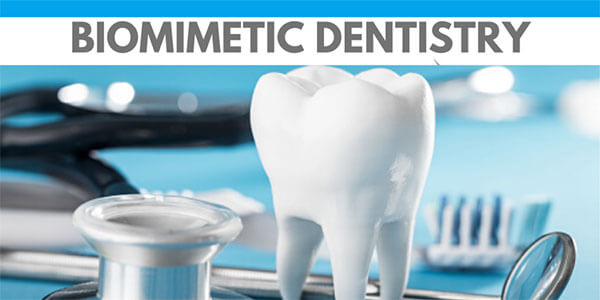
Traditionally dental crowns are constructed to go below the gum line to restore deep dental decay. However, deep dental crowns can cause bone loss and are challenging to clean. To circumvent this issue, Dr. Hawryluk Jr. can now fill deeper dental decay with composite resin, allowing for a shallower crown placed on top of it. With this approach, dentistry has become more hygienic, conservative, and predictable.
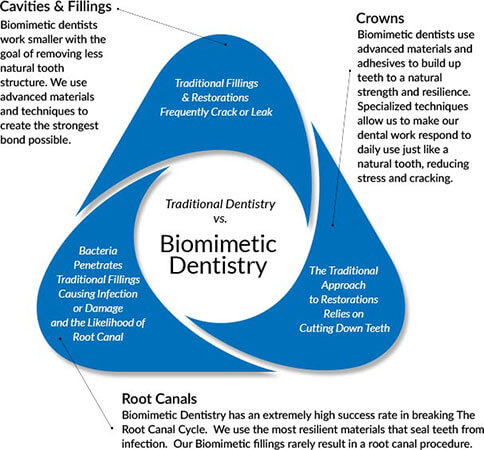
Dentistry has undergone a paradigm shift concerning tooth restoration. There is a movement away from doing full tooth crowns whenever possible. Instead, the concept of a combined dental composite and porcelain restoration is instrumental in treating decayed or fractured teeth.

Biomimetic tooth repairs take advantage of the tight seal of dental composite (white filling materials) to root dentin (second layer of tooth structure). The traditional way of using crowns is to do deep crown work and go several millimeters below the gumline. The departure from a deep dental crown has tremendous implications in simplifying fixing teeth. Dr. Hawryluk can create a more biologically acceptable restoration and can avoid gum surgery. In addition, it creates a “fail-safe” design for dental work, which is easily repairable in the future. Crowns made unnecessarily deep initially are more likely to fail in the long term.
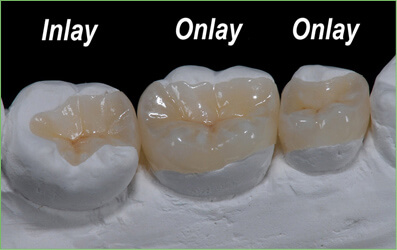
Dental hard tissues each possess different flexibility quotients. There is hard enamel on top and softer dentin underneath. The result is a natural tooth that has both some flexibility and also some wear resistance. Dr. Hawryluk will try and mimic these natural tooth properties by carefully considering the materials and techniques he uses. The difference between the stiffness of a cast metal crown relative to the more flexible underlying tooth can create an issue that can cause a tooth to fail. The weakest spot on a tooth is at the gingival margin (gumline), and this discrepancy can place unnecessary stress here. A stiff crown under a more flexible tooth substrate can lead to a push-pull action, which can cause cement washout at the gumline and opening of the dentinal tubules, causing sensitivity. Complete crown treatment can sometimes result in sensitivity, recurrent cavities, weakened teeth, pulp degeneration, gum disease, and even eventual tooth loss. Dentistry can “biologically fail” due to crown leaks, cracks in teeth and are often not symptomatic until they are catastrophic to the tooth.

Dr. Hawryluk Jr. strives to create “fail-safe” dental restorations. Such dental restorations have limited or no potential for recurrent cavities, protect the tooth from cracking, are easy to repair and maintain in the long run, and preserve the tooth.
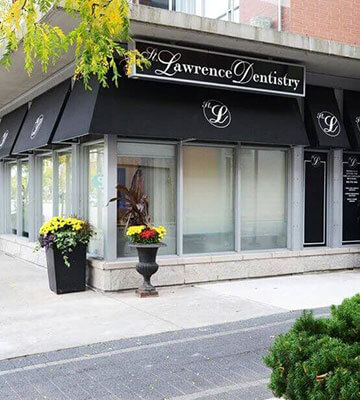
Nothing in this world can be guaranteed forever, and if dentistry breaks down, we need it to fail in a friendly, easily repairable way. If, for example, if a porcelain restoration has a break hypothetically 15 years after initial placement, it is ideal if it can be repaired rather than having to do a new one and damaging the underlying tooth in the process. Dr. Hawryluk uses biomimetic dentistry techniques to create such “fail-safe” dental restorations. This type of dentistry mimics the biological and mechanical properties of the underlying tooth and is in contrast to the potentially catastrophic failures of traditional dentistry. It is in comparison to the potentially catastrophic failures of conventional dentistry.
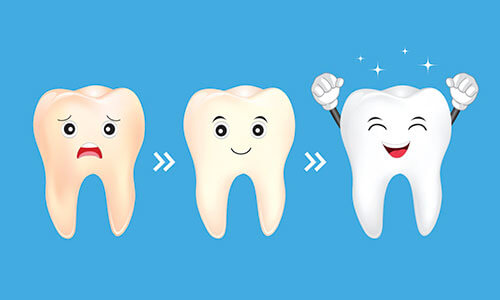
The objective of the biomimetic strategy is to replicate the intact tooth mechanically and biologically. Dr. Hawryluk Jr. accomplishes this by replacing lost tooth structure using materials with similar properties with a predictable methodology based on science. This strategy aims not to use the most durable dental material but preferably one that is compatible with the mechanical and biological properties of the underlying tooth. In other words, it is not good to have a “rock hard” dental crown only to have the tooth substrate underneath break.
Biomimetic dentistry eliminates cracks and infections in teeth. Its protocol calls for bonding the tooth from all directions to lower the stress/strain on the teeth. Ultimately these types of dental repairs are far more resistant to breakage than traditional methods. It also attempts to replicate the original tooth anatomy. Successful modern adhesive dentistry is expressed in an equation between bonds and stresses, where the bonds can withstand the pressures.
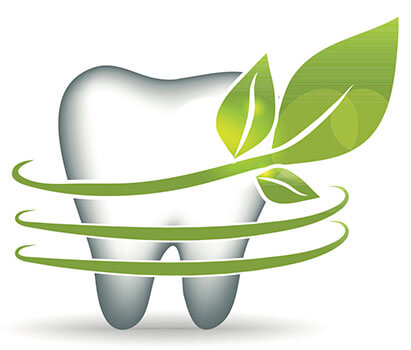
Some advantages of Biomimetic based porcelain dentistry are:
- Completion of “core buildups” (filling foundations of dental crowns) without tissue bleeding.
- Less cutting of tooth structure means less sensitivity and reduced chance of needing root canal treatment.
- Dental procedures are quicker and more comfortable.
- Gum Surgery or “Periodontal Crown Lengthening Surgery” is usually not required.
- Minimal adjustment of dentistry at insertion appointment.
- Preserves the natural tooth flexibility and creates a low-stress cleanable restoration.
One of the prime objectives of Biomimetic Dentistry is to maintain the vitality of the dental pulp and avoid root canal treatment. Dr. Hawryluk will eliminate infections in the dentin tissue of a tooth by removing and deactivating bacteria. In addition, he will create a peripheral seal zone in your tooth to ensure the long-term success of your dental work. Biomimetic dentistry removes tooth cracks. Dr. Hawryluk will gently ‘chase; these cracks and seal them with a dental composite. No longer do dental crowns them selfs need to chase breaks below the gumline.

When discussing Biomimetic Dentistry, the term C-Factor often comes up. The C-Factor is also known as the “configuration factor” and is the ratio of bonded surfaces to unbonded surfaces. For example, cavity preparations with many walls have a high C-Factor, whereas those with single-bonded surfaces have a lower one. Each type of situation requires a different bonding protocol, which Dr. Hawryluk Jr. is well versed. If you are interested in knowing more about this term, please let us know. Material selection for ideal Biomimetic Dentistry is of paramount importance. Unfortunately, many dental composites on the market today have problems or poor conversion of monomers into polymers and addition shrinkage stress when setting. St. Lawrence Dentistry uses a dental composite made by GC America called Gaennial injectable has an updated resin system with lower shrinkage and high polymerization rate. We are pleased to offer this tremendous advancement to our valued clients.
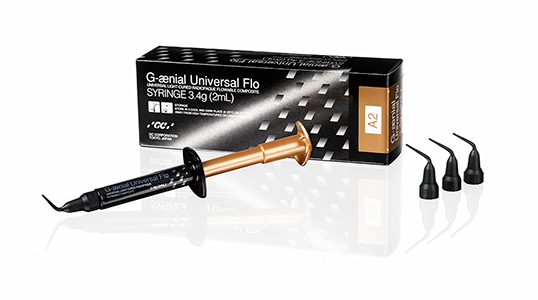
To learn more about this product, please visit us here:
Advantages of Premium Dental Filling Products
Biomimetic Dentistry has many benefits and is an integral part of what St. Lawrence Dentistry offers its valued clients. Please call us if you are looking for a new dentist and live in the Mississauga, Oakville, or Toronto area.
Reference: Viva Learning 2019: Biomimetic Dentistry
- St. Lawrence Dentistry Looks Forward To St. Patrick’s Day! - March 12, 2025
- Understanding Dental X-Rays and Radiation: What You Should Know - January 13, 2025
- Happy New Year from St. Lawrence Dentistry! - December 30, 2024



